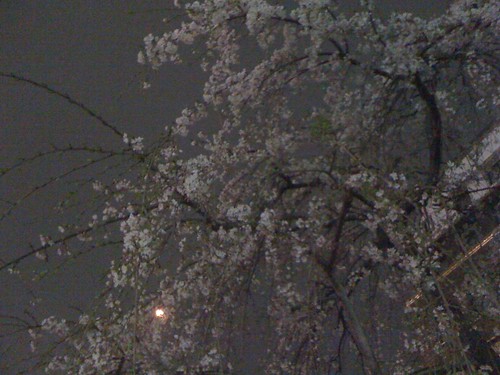
I've been talking about apostrophes for a few posts now. Here are the two previous posts:
http://upgradeenglish.blogspot.com/2010/03/part-1.html
http://upgradeenglish.blogspot.com/2010/03/part-2.html
Last time, I said you should only use apostrophes for animals and people, but there's one other case that's common:
you can use an apostrophe to talk about a noun related to a time.
- Today's blooming cherry trees are really beautiful, even at night.
- I'm not sure if they are more beautiful than last year's, though.
- I hope that tomorrow's forecasted rain doesn't spoil the blossoms.
- 打ち壊す (うちこわす) (v5s) to destroy; to spoil; to crush; to wreck; (definition from Edict)
- 損なう (そこなう) (suf,v5u) to harm; to hurt; to injure; to damage; to fail in doing; (P); <- similar to "spoil"
However, using the apostrophe for times which are shorter than an hour is less common or strange.
× It started raining earlier tonight, but the last minute's rain has been lighter. <- not exactly wrong, but...
◯ It started raining earlier tonight, but the rain in the last minute has been lighter. <- this sentence is more natural, I think.
I'll look at some more common mistakes with apostrophes next time. In the meantime, enjoy
this year's cherry blossoms!
 I've been talking about apostrophes for a few posts now. Here are the two previous posts:
I've been talking about apostrophes for a few posts now. Here are the two previous posts:
0 件のコメント:
コメントを投稿